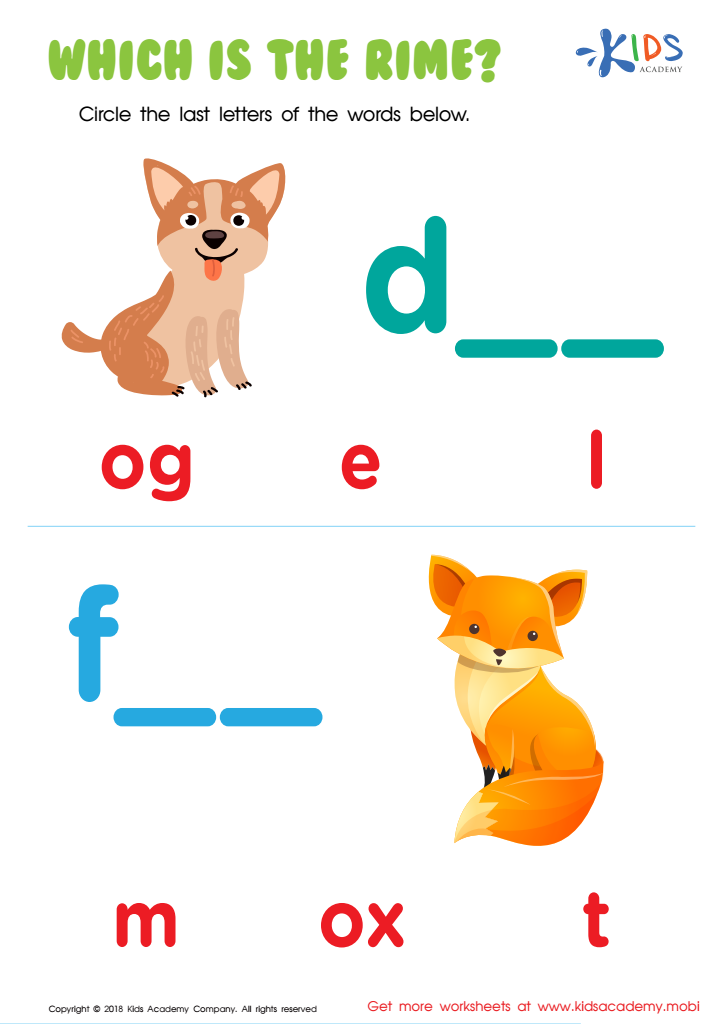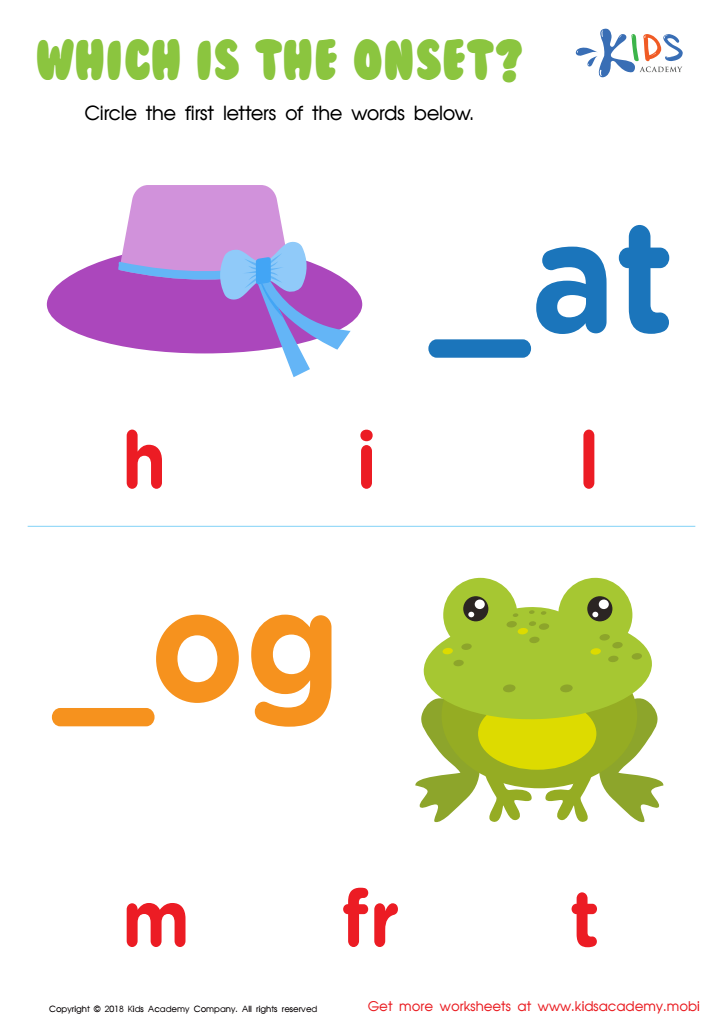Ending Sounds Worksheets for Ages 3-4
4 filtered results
-
From - To
Introducing our "Ending Sounds Worksheets for Ages 3-4," the perfect educational tool to guide your little ones on their phonics journey! Crafted with care, these worksheets are designed to captivate and engage preschoolers, helping them master the art of recognizing and articulating ending sounds in words. Through a series of fun and interactive activities, children will enhance their listening skills, boost their phonemic awareness, and build a strong foundation for reading success. Ideal for both classroom and at-home learning, our Ending Sounds worksheets are your child's first step towards phonetic fluency. Start this exciting educational adventure with your child today!


Phonics and Word Recognition: Assessment 1 ELA Worksheet


Which Is the Rime? Worksheet


Which Is the Onset? Worksheet


Twin Onset Worksheet
Worksheets on Ending Sounds for Ages 3-4 play a crucial role in the foundational phase of a child's literacy development. At this pivotal age, children are just beginning to grasp the fundamentals of language and sound recognition, making it the perfect time to introduce the concept of ending sounds. These worksheets are designed with the developmental capabilities of 3 to 4-year-olds in mind, focusing on simple, yet essential phonemic awareness activities.
The significance of mastering ending sounds cannot be overstated. It aids in the development of reading and spelling skills by enhancing a child's ability to distinguish between similar-sounding words, a crucial step towards fluent reading and clear pronunciation. For children aged 3-4, learning through engaging and interactive worksheets can make this learning process not only more effective but also enjoyable.
Moreover, Ending Sounds worksheets for Ages 3-4 serve as building blocks for more complex phonics instruction. They lay the groundwork for understanding word structures, which is key to developing decoding skills needed for reading. By starting early, parents and educators can give children a significant advantage, fostering a love for reading and learning that will benefit them throughout their educational journey. In essence, these worksheets are more than just educational tools; they are gateways to literacy success for young learners.

 Assign to the classroom
Assign to the classroom










